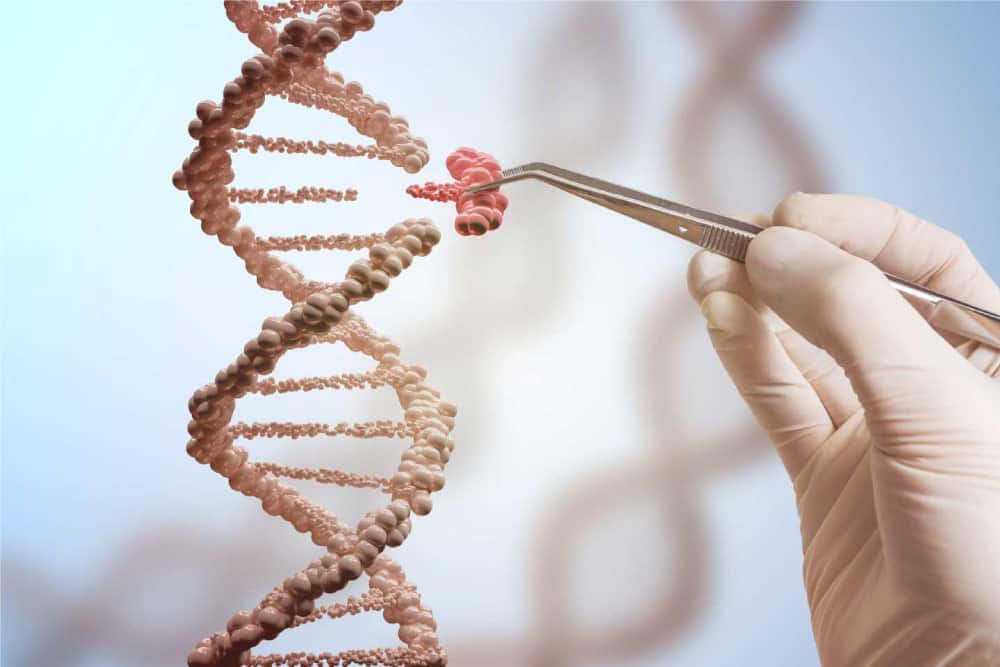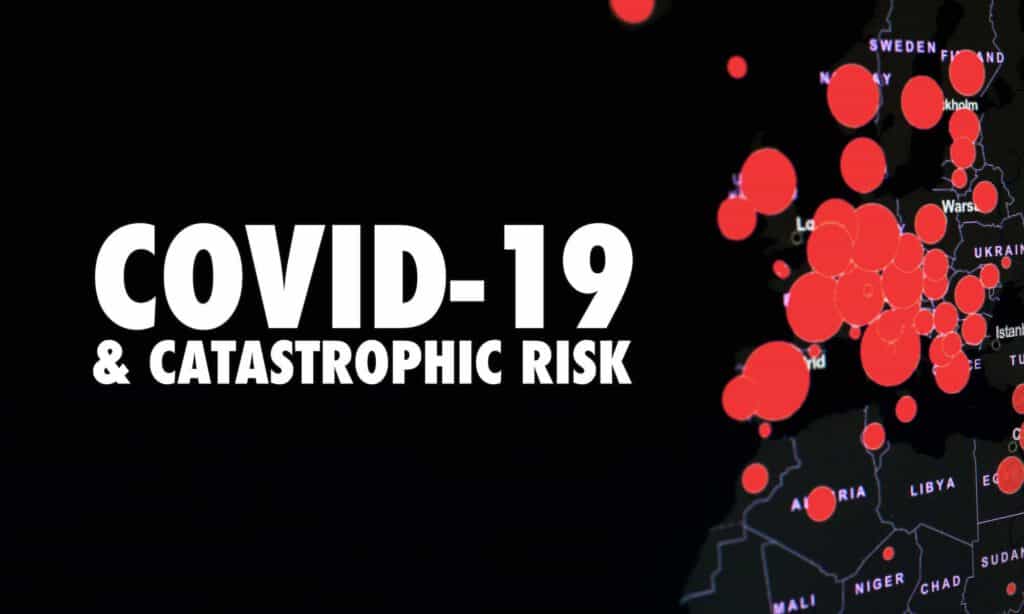Biotechnology Resources
October 12, 2015
admin

Contents
How can we live longer and healthier lives while avoiding risks such as engineered pandemics? Future biotechnology can bring great benefits, and also new risks, as described in the resources below.
Videos
- Prof. Marc Lipsitch: Risks and Benefits of Gain-of-Function Experiments in Potentially Pandemic Pathogens
- Cathal Garvey: Bringing Biotechnology into the Home (TEDx Talk): In this TEDx talk, Cathal Garvey reviews the benefits of biotechnology and introduces consumer biotechnologies in development; such as bioprinters, customized pets, downloadable DNA, and biochips.
- Nina Tandon: Caring for Engineered Tissue (TED Talk): In this TED talk Nina Tandon talks about simple but powerful methods of caring for artificially grown cells by copying their natural environment.
- Gregory Stock: To Upgrade is Human (TED Talk): Biotech ethicist Gregory Stock talks about new, more meaningful (and controversial) technologies, like customizable babies, whose adoption might drive human evolution.
- Richard Resnick: Welcome to the Genomic Revolution (TEDx Talk): In this accessible talk from TEDxBoston, Richard Resnick shows how cheap and fast genome sequencing is about to turn health care (and insurance, and politics) upside down.
- Ellen Jorgensen: Biohacking – You Can Do It Too (TED Talk): In this TED talk, Ellen Jorgensen introduces us to the biohacking community and reviews common misconceptions about the dangers of biohacking.
Research Papers
Books
- Biotechnology for Beginners: An overview of biotechnology for beginners and lay readers. Includes a wide array of biotech sciences such as: genetics, immunology, biochemistry, agronomy, food science, and animal science.
- Biotechnology and the Human Good
- Fighting for the Future of Food
- Introduction to Biotechnology
- Our Posthuman Future: Consequences of the Biotechnology Revolution
Organizations
- Cambridge Working Group: Works to address the risks of Potential Pandemic Pathogen research through promoting public understanding, risk assessment and regulation of such research.
- etc Group: Works to address the socioeconomic and ecological issues surrounding new technologies (especially agriculture) that could have an impact on the world’s poorest and most vulnerable people.
- American Biological Safety Association (ABSA): Promotes biosafety as a scientific discipline through forums and peer-reviewed journals for biosafety professionals throughout the world.
- Biomedical Advanced Research and Development Authority (BARDA): Develops and procures needed medical countermeasures (MCMs), including vaccines, therapeutics, diagnostics, and non-pharmaceutical countermeasures, against a broad array of public health emergencies in the US.
- Biotechnology Industry Organization (BIO): A trade association representing biotechnology companies, academic institutions, state biotechnology centers, and related organizations around the world. Researches and developes innovative healthcare, agriculturual, industrial, and environmental biotechnology products.
- Center for Advanced Biotechnology and Medicine: Conducts biomedical and biotech research and development to improve human health.
- Center for Biodefense and Emerging Infectious Diseases (CBEID): Addresses and researches important issues in the protection of the US from biological threats, including bioterrorism, biological warfare, and tropical infectious diseases.
- Center for Infectious Disease Research and Policy (CIDRAP): Works to prevent illness and death from infectious disease threats through research by implementing real world practical applications, policies, and solutions.
- Center for International Security and Cooperation: Stanford University’s hub for researchers working together to tackle some of the world’s most pressing security and international cooperation issues; and to influence the policymaking agenda in the United States and abroad to help build a safer world.
- Center for Policy on Emerging Technologies (C-PET): A wide network of knowledgeable professionals who identify, clarify, and prioritize the big questions raised in a future perspective to cultivate a context within which solutions can be developed.
- Center for Strategic and International Studies (CSIS): A bipartisan organization that conducts research and analysis, and develops policy initiatives with a future outlook, to help decision-makers chart a course toward a better world.
- Centers for Disease Control and Prevention (CDC): The United States government’s center for research, analysis, and detection of new and emerging global health threats. Promotes healthy and safe behaviors, communities, and environments.
- Centre for Cellular and Molecular Platforms (C-CAMP): A research and development center in India which enables bioscience research and entrepreneurship by providing research, development, training, and service in biotechnology platforms.
- Centre for the Study of Existential Risk: A multidisciplinary research center dedicated to the study and mitigation of risks that could lead to human extinction.
- Chemical Biological Incident Response Force (CBIRF): Responds to chemical, biological, radiological, nuclear, or high yield explosive events in order to assist local, state, or federal agencies in consequence management.
- Chinese Center for Disease Control and Prevention (China CDC): A nonprofit institution that works in the fields of disease control and prevention, and public health management.
- Defence Advanced Research Projects Agency (DARPA) – Biological Technologies Office: Researches and designs breakthrough technologies for nation security.
- Defence Threat Reduction Agency (DTRA): The U.S. Department of Defense’s official Combat Support Agency for countering weapons of mass destruction.
- EcoHealth Alliance: An international organization of scientists dedicated to the conservation of biodiversity that researches the relationships between wildlife, ecosystems, and human health.
- Emerging Pandemic Threats (EPT) Program: Monitors and increases local capacities of geographic hot spots to identify the emergence of new infectious diseases in high-risk wildlife that could pose a major threat to human health.
- Federation of American Scientists (FAS): Provides a scientific analysis of and solutions to protect against catastrophic threats to national and international security.
- Foresight Institute: A think tank and public interest organization focused on transformative future technologies. Discovers and promotes the technological benefits, and helps avoid the dangers of nanotechnology, AI, biotech, and other similar life-changing developments.
- Global Catastrophic Risk Institute (GCRI): A think tank leading research, education, and professional networking on global catastrophic risk.
- Intelligence: Collects and conveys essential information the President and the members of policymaking, law enforcement, and military communities require to execute their appointed duties.
- International Federation of Biosafety Associatons (IFBA): Supports and promotes biosafety on a national and international level through collaboration among national and regional biosafety organizations worldwide.
- International Geosphere-Biosphere Programme (IGBP): Studies the global-scale and regional-scale interactions between Earth’s biological, chemical, and physical processes and their interactions with human systems.
- Lawrence Livermore National Laboratory (LLNL): Applies multidisciplinary science and technology to anticipate, innovate, and deliver responsive solutions to complex global security needs.
- Lifeboat Foundation: An organization dedicated to encouraging scientific advancements while helping humanity survive existential risks and possible misuse of increasingly powerful technologies.
- Middle East Consortium on Infectious Disease Surveillance (MECIDS): Advances the capabilities for early infectious disease and food-borne illness prevention, detection, control, and response between its member countries of Israel, Jordan, and Palestine.
- National Institute of Allergy and Infectious Diseases (NIH): Conducts and supports basic and applied research to better understand, treat, and prevent infectious, immunologic, and allergic diseases.
- New England Complex Systems Institute (NECSI): An independent academic research and educational institution that develops complex systems and its applications to study how interactions within a system lead to its behavioral patterns, and how the system interacts with its environment.
- Nuclear Threat Initiative (NTI): A nonpartisan organization that focuses on strengthening global security by reducing the risk of using and preventing the spread of nuclear, biological, and chemical weapons.
- Resilience Alliance: A research organization comprised of scientists and practitioners from many disciplines who collaborate to explore the dynamics of social-ecological systems.
- Skoll Global Threats Fund: Seeks solutions, strengthens alliances, and spurs actions needed to confront the global threats imperiling humanity.
- Society for Risk Analysis (SRA): A multidisciplinary, interdisciplinary, scholarly, international society that provides an open forum for all those who are interested in risk analysis.
- The Biosecurity Engagement Program (BEP): Engages with Life Scientists to combat biological threats worldwide by providing assistance to improve biosecurity, biosafety, pathogen surveillance, and infectious disease surveillance and response.
- The Center for Bioethics and Human Dignity (CBHD)
- The Club of Rome: An informal association of long-term thinkers interested in and concerned with the future of humanity and the planet.
- The Genome Analysis Centre (TGAC): A research institute focused on the application of genomics and bioinformatics to advance plant, animal, and microbial research to promote a sustainable bioeconomy.
- The Institute for Ethics and Emerging Technologies (IEET): A think tank which promotes ideas about how technological progress can increase freedom, happiness, and human flourishing in democratic societies.
- The Program on Science and Global Security (SGS): Carries out research, policy analysis, education, and training in nuclear arms control and nonproliferation, and provides research and administrative support to the International Panel on Fissile Materials.
- U.S. Department of Defense (DOD): Provides military forces needed to deter war and to protect the security of the United States.
- U.S. Department of Homeland Security (DHS) – National Biodefense Analysis and Countermeasures Center (NBACC): A national resource used to understand the scientific basis of the risks posed by biological threats and to attribute their use in bioterrorism or biocrime events.
- UPMC Center for Health Security: Protects people’s health from the consequences of epidemics and disasters, and ensures that communities are resilient to major challenges.
- Wilson Center: A non-partisan policy forum and a leading institution for tackling global issues through independent research and open dialogue to inform actionable ideas for Congress, the Administration, and the broader policy community.
- X-events: A research institute that works with the theory of surpize, studies extreme events, experiments different anticipation methods, and develops tools for research and decision making.
- Prevent Project: PREVENT works to reduce the risks that zoonoses—diseases that move between animals and humans—can pose to public health.
These organizations above all work on biotechnology issues, though many cover other topics as well. This list is undoubtedly incomplete; please contact us to suggest additions or corrections.
This content was first published at futureoflife.org on October 12, 2015.
About the Future of Life Institute
The Future of Life Institute (FLI) is a global think tank with a team of 20+ full-time staff operating across the US and Europe. FLI has been working to steer the development of transformative technologies towards benefitting life and away from extreme large-scale risks since its founding in 2014. Find out more about our mission or explore our work.
Our content
Related content
Other posts about Collection
If you enjoyed this content, you also might also be interested in:

Introductory Resources on AI Risks
Why are people so worried about AI?
18 September, 2023

Global AI Policy
How countries and organizations around the world are approaching the benefits and risks of AI Artificial intelligence (AI) holds great […]
16 December, 2022

COVID-19 & Catastrophic Risk
What the experts are saying The viral disease known as COVID-19 has claimed hundreds of thousands of lives, devastated the […]
13 April, 2020

Women for the Future
In honor of Women's History Month, FLI presents 'Women for the Future': a celebration of the women who’ve made it their job to create a better world for us all. Ran in March 2019.
13 March, 2019
Our content
